Florian DAVID: We are most delighted to be holding today a ZEFYR LIFE conversation with someone whose humility, integrity, determination, optimism and kindness put a smile on people’s faces wherever he goes. He believes in Africa and in Africans as his beloved grandfather did. He believes that a new world is possible. A world where all children are our children. Ndaba Mandela is active in keeping the legacy of his grandfather South-African and world Leader Nelson Mandela alive, and introducing Nelson Mandela to a younger generation. He is the co-founder and co-chairman of the AFRICA RISING Foundation. He is also the founder of the Mandela Project and was part of the team for the Mandela Centenary in 2018.
This past year Ndaba Mandela has also partnered with beloved Prince Harry and Sir Elton John to launch a campaign to raise awareness about HIV and AIDS. They kicked off the global campaign this past July at the 22nd International AIDS Conference in Amsterdam. Ndaba Mandela is a UNAIDS Global Ambassador, helping UNAIDS lead the global effort to end AIDS as a public health threat by 2030 as part of the Sustainable Development Goals.
Dear Ndaba it is both han honour and a joy to have you. Welcome!
Ndaba MANDELA: Thank you very much!
DAVID: It is so great to have you here with us today. First I would like to thank you very much, for making the time amidst your frantic schedule. And then thank you for your book, Going To The Mountain. I read a lot of books and I can tell you that book is very well written, it is very honest, I loved that it is very candid, it is full of love, and your life journey - not your Grandfather’s journey which we will also talk about in relation to yours - your own life journey is amazingly inspiring and helped me go through three difficult months where I was immobilized after an injury to three cervical disks. So I had an opportunity to read your book three times! [laughs]
What your book then did, it made me want to go back to the book of your Grandfather which I had read for the first time when I was twelve, Long Walk to Freedom. Funnily I did not recollect much about the book. I knew your grandfather’s life because he is one of my heroes with John Fitzgerald Kennedy - even though I really place your grandad at the very top of that list. So I re-read Long Walk to Freedom and I was also under painkillers so it felt like a mystical experience! [laughs]. We will first discuss your life, your childhood. We will then talk about your grandfather and the human being he was, through your own lens. Then we’d love to discuss Africa and your Foundation, AFRICA RISING.
MANDELA: Wow! Wow, wow. Thank you!
DAVID: So if I ask ‘How are you?’, will you answer: ‘Ndi Nya Mezela’? [smile]
MANDELA: [Laughs]. I will say ‘Ndiphile’, this means ‘I am Healthy’ in Xhosa language [Ndaba Mandela’s native language].
DAVID: Ah I see. And what’s the other idiomatic way to respond which means ‘I endure’?
MANDELA: ‘Ndi Nya Me-ze-la’ [Intonations going melodically up and down]. Yes this one means ‘I endure’.
DAVID: Ah! ‘Ndi Nya Me-Ze-La!’ [Trying to pronounce with the right intonations]. That’s the idiomatic one that I liked a lot! I love that one. Because for me as you advance in life you realize that this is what being a Human, a Man with a capital M is all about. Life is not easy so it is about our ability to endure and stand tall in the face of the challenges we encounter. And life was not kind to you especially growing up. I like that in your family, after what you have been through for five generations with appartheid you say ‘In our family we go forward, we don’t flinch.’ I have always felt a strong connection with your grandfather’s life story, the surrounding history, what I could know as an outsider, and even more so after going through your own book titled ‘Going To The Mountain’. It is very well written, it is very emotional, and for me really it is a love story. It is full of love.
And here is a question. There is a word that I have learned that I did not know about, I learned it from you and loved it immediately. Can you tell us Ndaba Mandela what ‘UBUNTU’ is?
MANDELA: [Laughs].
'UBUNTU MEANS THAT I CAN NOT EXIST WITHOUT YOU, AND YOU CAN NOT EXIST WITHOUT US.'
MANDELA: UBUNTU is the notion amongst African people that recognizes our common, shared humanity. You know? And basically ubuntu means that I can not exist without you, and you can not exist without us. So I am the man that I am because of the people that I have around me. And that is why they say in Africa ‘It takes a village to raise a child’. Because in our community it is not just the responsibility of the parents, the father and the mother, to teach the children about morality and being a good person. It is the responsibility of everybody in the community, to raise a child and teach the right things to all childs. So even when the parents are not there the kids will continue to learn. So everybody in our communities is a parent. They all become parents, brothers, mentors.
DAVID: It is beautiful. It is truly beautiful! I think we can expand upon that later because this can really become the cornerstone of a new global programme, which I am sure you have already given some thought to. An extremely powerful idea that we should preempt and deploy further, globally.
MANDELA: Of course!
DAVID: It is a great concept. Because it is talking about our interdependence. It is talking about fraternity and brotherhood. There is also a lot of humour in your book. I love when you say that you were surprised that our supposedly civilized Western world is discovering what love means, and that love can go beyond family bonds. [smile] You Africans did not wait for the Western world to understand that the notion of love is something much larger that goes beyond the exclusive family nucleus. And that the definition of a ‘family’ itself therefore, can extend beyond the traditionally limited and limitative acception of the word family. I really loved that. When you say, that this idea of ubuntu was fostered by your grandfather in your formative years and that you see in ‘in action’ around you on a daily basis, can you give us one concrete example of ubuntu in action, this inderdependence?
MANDELA: I will give you one of my favourite examples. You see, when the American government decided to invade Iraq back in 2003, because they supposedly had weapons of mass destruction, and the UN had a report that there were no weapons of mass destruction but the US decided to invade Iraq anyways, remember?
DAVID: Yes that government had been lying.
MANDELA: Yes, and my grandfather was very angry. And so he took it himself to the newspapers and on broadcast television, he made a statement. And the statement that he made was something like this: Why does the American government decide to invade Iraq, even though the United Nations are reporting that there are no weapons of mass destruction? Is it because for the very first time the United Nations is led by an African man that they decide to not hear their report and their recommendation?
DAVID: Yes it was Kofi Annan back then, who was Ghanaian.
MANDELA: Yes. And in that moment, in that moment my grandfather was basically showing solidarity and support to his brother Kofi Annan, as a friend, to let the world understand that one can not undermine our political sense simply because we are Africans. Simply because Africans do not lead our world our word shall not be less than yours. Our word is worth as much as your word.
DAVID: That’s right.
MANDELA: His message was ‘do not look down upon us’. I am here to show my brother that I have my brother’s back, I show him solidarity, even though I do not work with him, even though I do not know him very well, I show the world that I act in solidarity. That is to show ubuntu.
DAVID: Solidarity is a beautiful word. One of our latest conversations was with acclaimed publisher Martine Assouline and she told us that solidarity was one of the human emotions that moved her the most and could make her cry. It seems to me Ndaba that gratitude plays a big big role in your life. But you did not start in life feeling gratitude. It was more an intense feeling of loneliness right? Throughout your childhood. What would you say this loneliness has taught you?
'IN LIFE, A LOT OF THE TIME YOU TRAVEL ALONE'.
MANDELA: Well you know, loneliness has taught me resilience. It has taught me that, you know, in life, you do not want to rely too much on other people. In life you know, a lot of the time you travel alone. And it is up to you to find the inspiration, within yourself. You have a vision of what you want your life to become. Do not expect other people to walk the path for you. You have to find it within yourself. For example, when you look at the life of Muhammad Ali, how he journeyed to become a great boxer. You know, he says, you do not become a champion because you spend most of the time in the gym, but because there is something within you that is driving you to achieve your passion, to achieve your goal. You understand what I’m saying? You are not going to be a champion because of your trainer. Most people won’t even know who Muhammad Ali’s trainer was. The champion is the one who has to wake up every day in the morning at six o’clock or two in the morning and go for a ten kilometer run. So you have to find it within yourself. Totally believe in the vision and truly have a passion. Find it within yourself! And make sure that you achieve this vision, step by step, to get there!
DAVID: That’s right, Muhammad Ali had this within himself. And that fight also had to be waged also against himself, as we all are our greatest enemies. The first war we have to wage is that against ourselves. You were born in 1982 in Soweto, Ndaba. And Makgatho was your father. He was not able to raise you very long because he was plagued by his own personal issues, also because of the terrible context of the times. Sadly he died of the AIDS epidemics, and your mum you saw even less it seems to me, she was a social worker and she was also struggling. And still you managed to spend quite some time with your father, on and off, right? Till you were about seven. What have you learned from your father Makgatho and what have you learned from your mother Zondi?
MANDELA: Yes. Can you imagine what it was like for my father to have a father who was a giant of politics, known the world over, and having no relationship with that person at all?
DAVID: That’s right, your grandfather went to jail when your father was just 12 years old.
MANDELA: Yes. My father had not seen that person for over twenty years. You own blood that brought you in this world! So he had to hustle on the streets fighting for himself. You understand? So what I learned both from my grandfather and my father is that you have to use the most powerful tools that you can use to bring people together not appart. What I learned from my mother? She was always very cheerful, she had a great sense of humour, always pulling pranks on me. And that’s where the humourous side of me comes from.
DAVID: I think that is an enormous gift. Especially to go through hardship. Being able to take that back seat and laugh at life, which can be laughable at times. That sense of humour is a formidable strength to carry within oneself.
MANDELA: Even at the hardest moments, when we did not have much to eat for supper, you know, she was always finding a way to joke and to spread some humour around.
DAVID: That is beautiful and we can learn from that a lot. Your birth name was ‘Thembekile’, which means ‘The Trusted One’. Is that a hard name to carry Ndaba?
MANDELA: A hard name to carry? [laughs]. Not at all! [laughs]
DAVID: When you moved from Soweto to Durban as a child you became the only black kid in the classroom. And you say it was pretty tough. Can you plunge back in these times and with the eyes of a kid tell us why?
MANDELA: Kids are savages. I say savages because kids do not understand empathy. Kids are cruel. I was the only kid in the school that was different so they bullied me all the time. For instance they were going to mass and praying. I remember that nobody had taught me to do that. So it was very hard. Instead I was heading on to the field to play soccer. And so they were all just catching what I was not doing. I remember an incident when a teacher’s belongings had been stolen and everybody blamed me for that because I was an outcast.
DAVID: And you did not even have the opportunity to complain at home right? Was there no one you could speak to?
MANDELA: Happily I had my dad. He could not give me much but I remember he gave me a bit of money to buy a shirt once, and he would always be there for me and take care of me and he always had my back. For the first time I really appreciated my father.
DAVID: You talk also about the role of women. Your account is also an homage to women. I like when you talk about the role that women played in the fight against appartheid. You write ‘They made it happen. They did not sit around waiting for god to do it.’ I thought that was a very strong moment in your account.
MANDELA: Yes and they did not wait for the men either!
DAVID: Do you think that women are more courageous than men?
MANDELA: I believe so. I think women had to deal with a lot more than men, and they still managed to be a part of the fight. They are half of the population, and they give birth to the other half of the population! They not only have careers, they have to raise children at the same time. It is very rare for men to have to do that. And for women back in that generation you needed a lot of courage!
DAVID: That’s right! Our supposedly ‘civilized’ world still has also got to learn about that. When you see how women are still by and large being treated in large corporations, often still having to worry when they have to leave to give birth, wondering if upon their return they will still have a job. And we do not talk about this much openly still, but you hear it all the time in private conversations. As you said women bring life into this world, so I find this really sad. It does demonstrate clearly that life is not put at the heart of our economic system right now.
'WOMEN NEED MORE SUPPORT, THEY NEED MORE LOVE,
AND THEY NEED MORE RECOGNITION OF THE IMPORTANT ROLE THEY PLAY FOR SOCIETY.'
MANDELA: That is right. And we do not value women the way we should value our women. Women need more support, they need more love, and they need more recognition of the important role they play for society. And we need to protect them as much as we can.
DAVID: That’s right! And I think we need to re-instil a sense of sacred too in the world. Today in our western world is there still anything that’s hold sacred, beyond the religious acception of the term? Whereas it seems to me the sense of what is spiritual and sacred is still very strong in Africa. The symbolic and the sacred are two very important dimensions. I actually love your circumcision name, ‘Zwelijika’, which means ‘The world is changing’. Could you explain to us this concept according to which our world must change in order for it to survive?
MANDELA: Well yes it is about evolution you know. Culture has to evolve. We can not keep living in the same system that we had five-hundred years ago.
DAVID: And why are we not evolving?
MANDELA: Because the people currently in power do not want the world to change. It is up to us to fight these leaders. We do not have to rely on political parties any more. We can create a new system of goverment which I am going to be researching. We can create a new system of goverment which I call direct rule. Which will eradicate political parties.
DAVID: Please tell me more.
MANDELA: I believe that people can govern themselves. Provided we come up with a system.
DAVID: I will put you in contact with a man called Simon Franks in the UK who is also wanting to re-invent politics there. People in the UK too are frustrated with the only existing political offering that has been served to them for too long with the illusion of choice. Technology today must make possible direct participation in the democratic process, don’t you think?
MANDELA: Exactly. Exactly.
DAVID: In 1993 you were just eleven when a black BMW came and a man asked you to get in the car. He said he was being sent by your grandfather. He did not get too lucky because of course you did not believe him. In fact this was indeed your grandfather’s driver whom he had sent to pick you up. The second time around, however, you will get in the car. And that is how you will be lead to your Grandfather Nelson Mandela who, in a way, adopted you that day to raise you as his own son. Nelson Mandela had other grandkids and grandsons, why do you think he picked you to come and live with him? Why you? Why did he decide that he would invest some of his life, time, money, mentorship, to do for you what he had not been able to do for your own father. Why did he pick you Ndaba and not someone else?
MANDELA: I think he thought my father needed the most help and so he sent him to university. And he didn’t want my father to have to worry about me while he was studying. I think it could also have been a second chance for Nelson Mandela to become a father. He never had an opportunity to be a father. And at the time, I was not the first born son of my father - there was my older brother Mandla - but my brother Mandla was living with his mother overseas in London, and so they were fine, you know? They were not struggling like I was struggling with my father. So I really think he decided to take his son’s son to have an opportunity of being a father. And of course he chose his only living son. My father was then the only living son he had. His other son had died already. Also in our patriarchal system the name is passed on to the son, and not through the daughter. I think these are some of the reasons.
DAVID: The death of his children must have been a source of extreme distress and sorrow for your grandfather. A sorrow that one who has not lived through can not fathom. We can not but wonder if the intimate aquaintance with intense pain and suffering is not a condition for one to become a great public servant or Head of State. I have been pondering lately a lot about what makes a great public servant. I think that anyone wanting to apply to these roles should not be put through a lie detector but through an empathy detector [smile]. And one that has no empathy should have no place being a public servant what do you reckon? [smile]
MANDELA: True! You are a hundred percent correct!
DAVID: We just mentioned your brother Mandla. When he came from London to see you and your grandfather as you were still a kid and younger than him, he told your grandfather that he would love to take you on a trip to Hong-Kong, that seeing the world would be good for you. Your grandfather agreed and so off you went to Hong-Kong! And that is also with Mandla that you discovered hip hop and rap music, but also reggae, as Mandla knew everything about reggae! One of your music discoveries was Burning Spear, who himself had been heavily influenced by political activist Marcus Garvey, one of the first, legendary, panafricanists. That made me realize how Nelson Mandela was already walking on the shoulders of giants before him!
Ah the power of music! Your political consciousness arose at that time, as you were discovering hip-hop and reggae.
'THEY CAME OUT VERY BOMBASTIC, VERY LOUD, VERY PROUD. (...)
IT GAVE ME A HUGE CONFIDENCE, TO BE ABLE TO SAY I AM BLACK AND I AM PROUD.'
[NELSON MANDELA] SAID THAT SPORT AND MUSIC WERE THE ONLY UNIVERSAL LANGUAGES THAT WE HAVE IN THE WORLD TODAY.'
MANDELA: Hip Hop music is so amazing. When you see hip hop in those early days of the nineties, it was very much different from what you see today. Today it is about having fun and spilling big bucks and popping bottles of champagne, but before it was people commenting about social ills and wrong things that were happening in society. Remember that in America the black population were not getting the same services as the white people were getting, and so they were exposing the discrepancies of society, questioning why the government was bad, and what was happening with the crack cocaine generation in America. They came out very bombastic, very loud, very proud. They said we want to expose what is happening in America to the world, so that maybe we can start coming together as people to fix some of these social ills that are taking place in our society. So it gave me a huge confidence, to be able to express myself, to be able to say I am black and I am proud. These were some of my first idols. I am talking about Wu Tang Clan, Method Man, RedMan, I am talking about Kriss Cross, all these guys, they really gave us that confidence to be who we are and to be proud of who we are, and to be proud of our heritage as well. And so, in the words of Nelson Mandela he said that sport and music were the only universal languages that we have in the world today. I could listen to a song in Arabic or in Portuguese, and feel the beats even though I do not understand what it is saying but I get it, just like you as well as a Frenchman can listen to a song in American English and not understand fully the lyrics a hundred percent, but you can feel it you know.
DAVID: That is right! It is so true with love songs too. Say you are going through a breakup, you are drawn to a song you heard but did not fully comprehend. And then you go and check the lyrics carefully and right there, writen black on white, exactly what you are going through! [smile]
MANDELA: Exactly. It evokes a feeling through those lyrics that nothing else in the world can express.
DAVID: I like the words that you used to describe these old hip hop and reggae tunes. You say they were ‘full of outrage and revolution’.
MANDELA: Yes. Yes. I mean if you were listening to the Wu Tang Clan, if you were listening to Bob Marley…
DAVID: Bob Marley!
MANDELA: ‘Get Up And Stand Up!’ and if you don’t stand up then you are listening to a fake Bob Marley [laughs] because anybody who listens to Bob Marley would really have this urge to be able to accomplish anything! It would not matter if your teacher told you you couldn’t, you would wake up the next day and write your teacher’s opinions off.
DAVID: That’s right. It is pure energy.
The concept of compassion is at the heart of your life and was at the heart of that of your Grandfather Nelson Mandela. Interestingly I learned recently that compassion came to Oscar Wilde also during his time in jail too. How do you think compassion came to your grandfather? So many people go through challenging experiences in their lives and become bitter. So I think it had to have been there inside your grandfather, as a seed, before. How do you think compassion came to your grandfather?
'(...) TO ME THAT IS REALLY WHAT DEFINES NELSON MANDELA THE MOST. THE WAY HE TREATED PEOPLE.'
MANDELA: Remember that my Grandfather comes from a Royal Family* (*Nelson Mandela was a member of the Madiba clan, named after a Thembu Chief who ruled in the Transkei region during the Eighteenth Century). In that culture we had polygamy and my grandfather’s father had four wives, each coming from a different royal house. And so my Grandfather was born from the wife belonging to the house in charge of resolving disputes within the tribe. Our role was to mediate to the King. And in that position, as a negotiator, you have to learn how to treat people fairly. And he saw his Uncle, ‘The Regent’, playing this position too. I think these are the days where he was learning about compassion. As a ruler, you have to know when people are coming to you to resolve disputes - to complain about their neighbour who stole them and so on - how to punish fairly or reward them fairly. So I think that is where it started and of course when later on he started to see his people suffering from discrimination. And to me that is really what defines Nelson Mandela most: the way he treated people. Be it the King of Monaco or the Queen of England, or the bus driver or his security people, the cook or the cleaning lady, Nelson Mandela always remembered that he was this man coming from a very poor place who rose to become this famous leader, which to him meant that anybody regardless of their place, their race or their sex, or age or history could also achieve greatness.
DAVID: Personally that is also what I admire the most about him. That man who when called by the Queen of England was picking up the phone himself and answering ‘Elizabeth, how are you?’ [smile]. That man who was making his own bed in the morning. I guess your grandfather was deeply aware of the brevity of our lives, and had made his this quote by French philosopher Michel de Montaigne ‘On the most beautiful throne of the world, you are still sitting on your ass !” [laughs]
MANDELA: [Big Laughs]
DAVID: Alas not everyone realizes that, and then acts accordingly in their lives.
MANDELA: Yes that is unfortunate.
DAVID: Yes, people who take themselves too seriously are causing a lot of misery in the world. Regarding the notion of forgiveness you say that sometimes it takes a strong stomach to forgive. Do you personally feel that you still have some form of prejudices against white people? Have you forgiven them and if so, how?
'(...) WHEN I DO WORK WITH WHITE PEOPLE I DO NOT PUT MY PREJUDICES FORWARD.
I GIVE ALL THE BENEFIT OF THE DOUBT.'
MANDELA: I will tell you, I have friends who are white but I have still prejudices against some of the white people in our society because of the treatment that they have been inflicting upon some of us up until this very day. You understand what I’m saying? I still have these prejudices. Because of what I see happening in my country today. I see white people putting the black man into the coffin. I still see white people beating up the poor man. I still see this. So it is very hard for me to not have prejudices. BUT - when I do interact with white people, when I do work with white people, I do not put my prejudices forward, I give all the benefit of the doubt, I treat anyone as though they are good untill they show me their ugly side.
DAVID: The important thing about what you are saying is that the important work that your Grandfather initiated is far from over, the country is still grappling with some issues. Even land redistribution is still an issue right?
MANDELA: That is correct but we are working through this issue, and I am confient that we will find a solution at the end of the day.
DAVID: Your Xhosa language is very rich, very nuanced. The word hatred in Xhosa is INZONDO. But then there is the word NGCIKIVO which has a whole additional level of connotation, more like ‘CONTEMPT’ - I quote you - ‘That deeply engrained refusal to accept the humanity of another person, a stubborn blindness to their suffering, a self-comforting belief that they don’t really matter’. Where does this come from?
MANDELA: This [hatred] has ben passed on from generation to generation.
DAVID: So, if this is the result of education, which I believe it is, the good news is that, in theory, we should be able to reverse it?
MANDELA: We should be able to reverse it, but number one this is not going to happen automatically. And this will happen only with a conscious effort. And that effort has to be made over a period of time. Not take place over one week or a month, we have to keep on educating. Unfortunately it is very difficult to remove these prejudices when someone is eighty years old, but we can work with young people to make sure that they do not have these prejudices. Through education.
DAVID: Let’s talk about AFRICA RISING that you started with your cousin Kweku Mandela. What I love about this movement is that the initial decision to start it was really rooted in the wake of your own personal tragedies, and namely the death from AIDS of both your parents. And from that pain, and that is what is admirable, came about something good. And I am so happy that your Grandfather lived long enough to see you start this movement and endorse it, is that right?
MANDELA: Yes he was there, with us.
DAVID: You say that Madiba (Nelson Mandela)’s wisdom has the power to ‘Reshape the world’, ‘both the one we share now and the one that our children will inherit’. Can you tell us Ndaba in what ways you would wish for this world to be reshaped?
'I WOULD LIKE THE ENDING OF PREJUDICE. AND THE ERADICATION OF THE HIV AIDS EPIDEMICS.'
MANDELA: I would like the ending of prejudice. And the eradication of the HIV AIDS Epidemics. These two things.
DAVID: As far as Africa is concerned you say that kids were raised in this African culture not to ask questions. This is something you would like to change, and from were I sit I would say rightly so because if you can change that, I feel like you will have resolved ninety percent of the equation. This is the first step towards breaking these mental chains you sometimes refer to, which you say still hold back your people. Their own mental chains!
MANDELA: A hundred percent. We have to learn, not hide from our children. We also have to learn to be open to our children. From the age of five you have to talk to your children as to adults. Those children’s brains as more powerful than we can believe. I see how inquisitive my own five year old daughter is, she keeps asking me why, why, why? [smile] We need to talk to them and empower them. This is why our AFRICA RISING work is directed towards empowerment. We work with high schools but we want to start in primary school. To ensure they are confident beings, and know that they can actually achieve their dreams and that they are the masters of their destiny. The sooner young people know this the better off the world will be.
DAVID: What can Africa bring to our chaotic, often meaningless and pathetic at times, world? What can we all learn from Africa?
'AFRICA MUST REMIND THE WORLD OF OUR SHARED HUMANITY.'
MANDELA: Africa must remind the world of our shared humanity. That is what Africa is here to do. To remind the world that we as humanity, whether we like it or not, share the same destiny. We do not have to wait for some aliens to come, to arrive and want to kill us all [for us to unite] [laughs]. I do not want my children to fight the battles I am fighting, I want them to fight new battles, that move humanity forward to a better place.
DAVID: And what are the signs that give you hope?
MANDELA: When I see kids from a classroom, of all different races playing together. Kids would love openly. They just want to play and run and be happy. Later they learn how to hate. So we must make sure that kids get rid of prejudice, learn about hatred, love and compassion. If a person can be taught to hate it can be taught to love. Because there is no difference between blacks and whites.
DAVID: You studied international politics and you are obviously interested in the world beyond Africa. The situation of blacks in America is still an issue obviously. Race in America is still an issue. How is the situation in America comparable to that in South-Africa? What are your views on what is happening in America?
'(...) IF WE CAN NOT GET AROUND THAT TABLE AND TALK, THEN, MY FRIEND, WE HAVE NO HOPE.'
MANDELA: America abolished slavery then they went on as if everything was okay. You see, what happened in South-Africa we had the Truth and Reconciliation Commission that was led by Nelson Mandela and Bishop Desmond Tutu. A lot of people criticized this saying it did not have much effect, however I believe that we need to have people come around the table to talk about the differences, to talk about the issues, that way we can get them out of our chests and move forward. We need to make sure that we create an environment where the perpetrators do not feel that they will be vilified by the system. For instance grant amnesty to the certain perpetrators so long as they are truthful about what happened. And I believe that what is happening now in America is that people are refusing to come together to have a conversation. And if we can not get around that table and talk, then, my friend, we have no hope.
DAVID: Right.
MANDELA: For all of us to start the [healing] process we need to come together and talk about the atrocities of the past. That is the purpose, to make sure that we understand the depth of the pain that was caused to the victims and the effect the savagery had on those people. It is not about making sure these people go to jail and making sure they know they were wrong - of course they know they were wrong! - But let us show them instead the actual effects their actions had on tearing up and appart these families. On killing the people, on separating families. Let them understand. Let us have a talk. This is what needs to happen in America. They need to have a huge conversation. Across the country.
DAVID: This is very intelligent and we do not hear that a lot actually. It absolutely resonates with us Ndaba.
Now, to conclude - because I could probably chat with you for a week Ndaba [laughs]
MANDELA: [Laughs]
DAVID: Look. We started in Xhosa. I would like to conclude with some Xhosa words and please excuse my lack of knowledge. If I say ‘KUHLANGENE ISANGA NENKHOLA’: 'The wonderful and the impossible sometimes collide’. What needs to happen for the wonderful and the impossible to collide, what does this mean to you?
'WE HAVE TO ENCOURAGE PEOPLE, ALL PEOPLE, TO DREAM.'
MANDELA: We need to keep dreaming, brother. We need to keep dreaming. we need to invite the people to keep dreaming. And encourage the people to keep dreaming. And make them understand that no matter how unsurmontable things seem, if you work hard at it, you can turn these dreams into reality. We have to encourage people, all people, to dream. That’s what we need to do. Because it all starts with a dream. Martin Luther King had a dream. JFK had a dream. Rosa Parks had a dream. Nelson Mandela. They all started with a dream. That is what this means to me.
DAVID: Well, thank you for this, Brother.
MANDELA: Thank you, Florian!
SHOP Ndaba Mandela's book 'GOING TO THE MOUNTAIN' on EPICURUS, The World's first Philanthropic Shopping Destination on Art Of Living. We will give 100% back to the Elton John's AIDS Foundation to help eradicate AIDS.

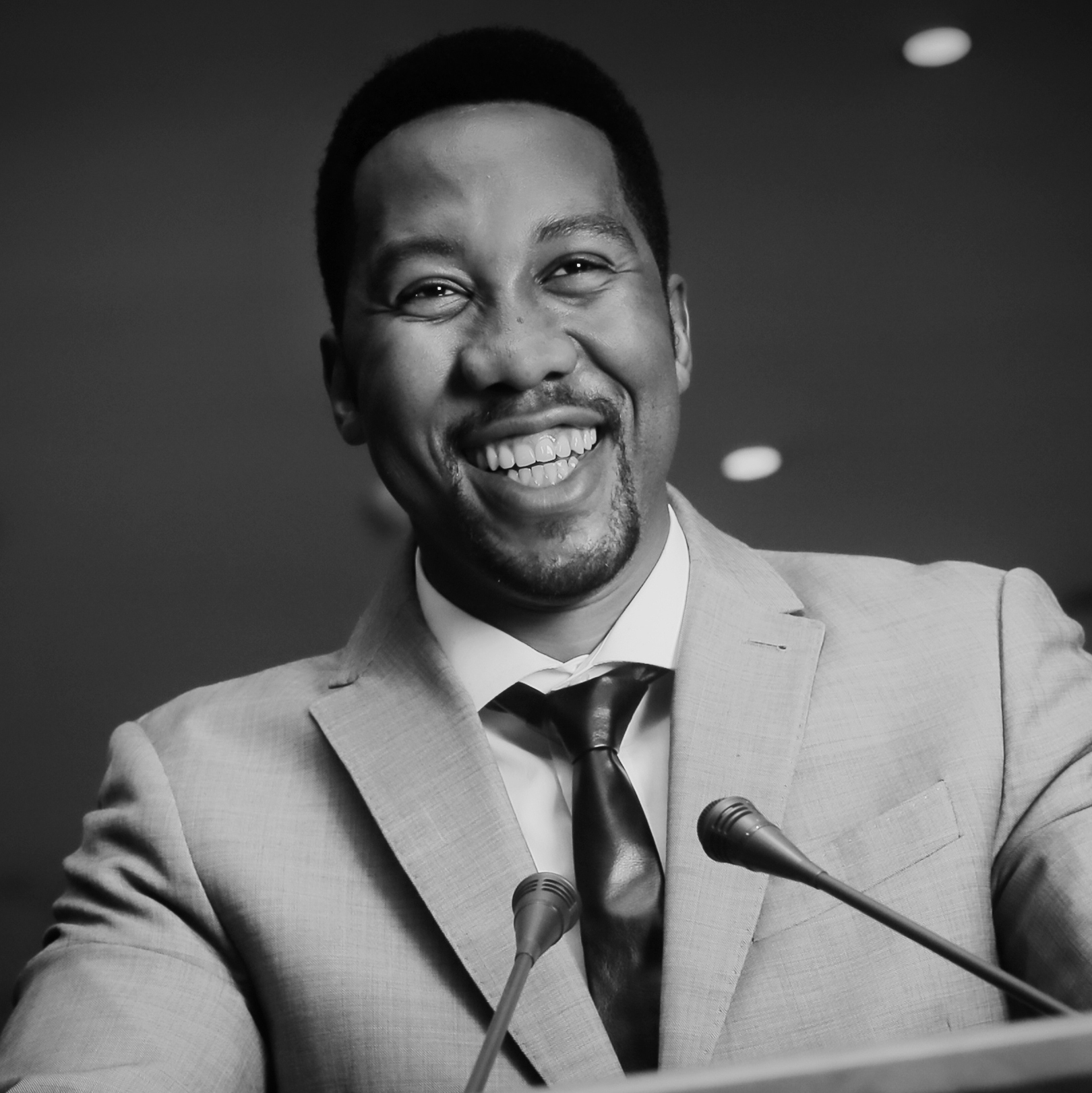



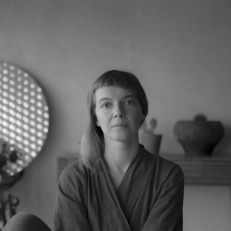
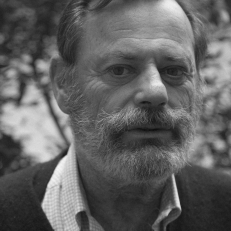
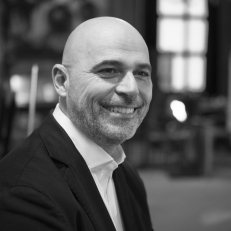
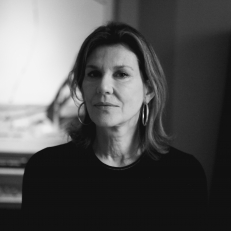
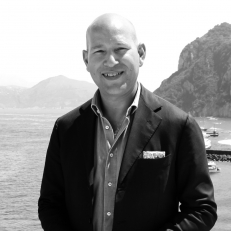
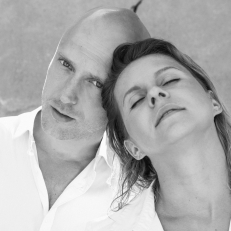
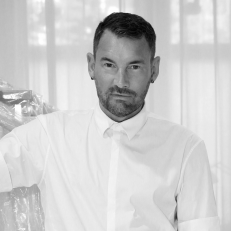
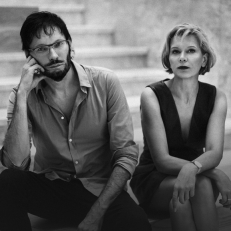
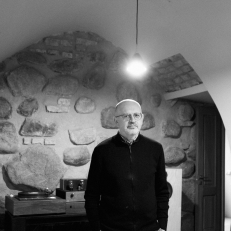
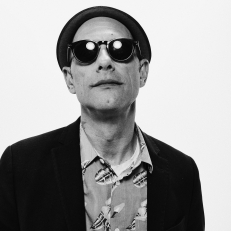


Add a comment